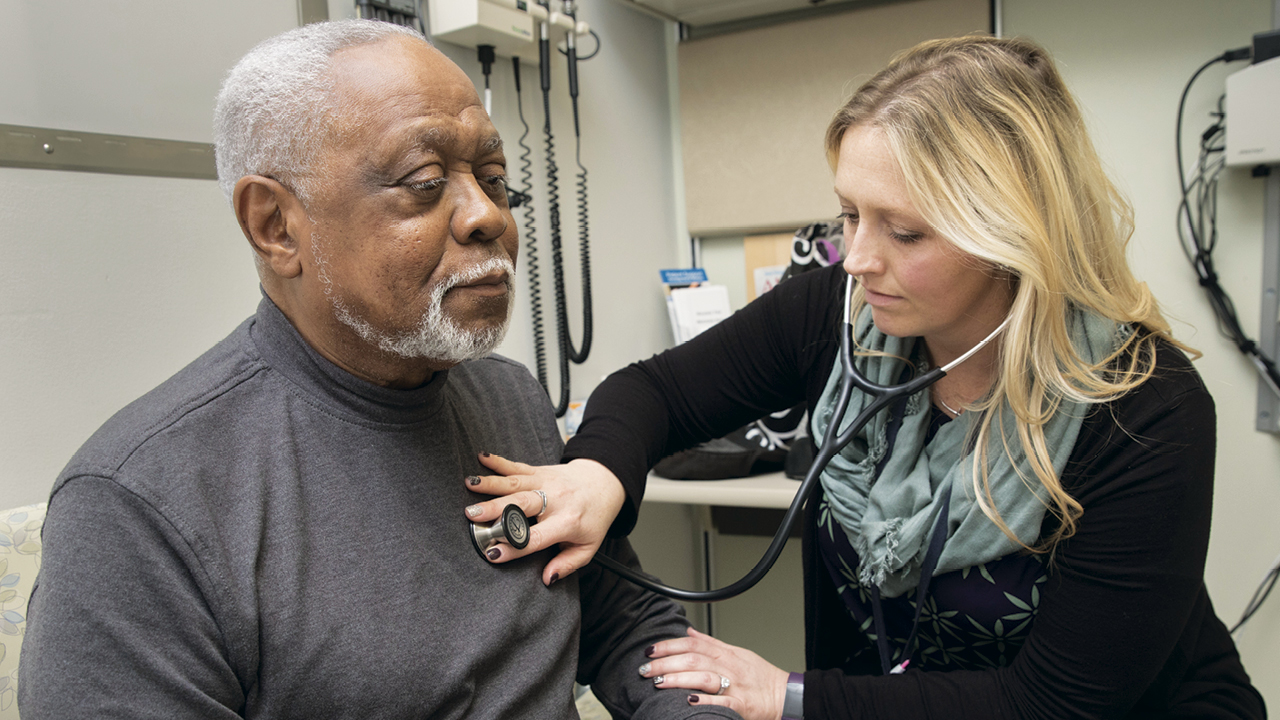Teaching an old drug new tricks
Tapeworm medication extending lives of advanced prostate cancer patients
Thomas Hogue and Rudy Cuellar have both made lasting contributions to the Sacramento area community.
Hogue is an evangelist and the father of seven grown children. “Don’t ask me to count the grandchildren,” jokes the 78-year-old Elk Grove resident. Since moving to the area in 1980, Hogue has been organizing a team of more than 300 volunteers as part of Loaves and Fishes that feeds thousands of homeless people in downtown Sacramento twice a month.
Cuellar is a 67-year-old former art instructor living in Sacramento. He retired from California’s correctional system where he spent years bringing the healing power of art to inmates. He also spent years teaching art to students at Sacramento State University. But many local residents might know him best as a member of the Royal Chicano Air Force, a group of activist artists. “I was the youngest and I don’t drink, so I used drive all those old guys around,” Cuellar says.
Hogue and Cuellar may also be making a lasting contribution to science and helping to reduce the number of deaths caused by advanced prostate cancer, which last year numbered more than 29,000. When they volunteered for a phase I clinical trial being conducted by researchers at the UC Davis Comprehensive Cancer Center, both men were suffering from advanced disease that was not responding to treatments. Now, thanks to a drug called niclosamide, discovered in 1958 to treat tapeworm infections and rediscovered by UC Davis researchers to be useful against prostate cancer, both have been cancer-free for more than a year.
“Initially, 95 percent of patients with metastatic disease will respond to current treatment, but eventually almost all of them will become resistant to the medications,” explains oncologist Chong-Xian Pan, a professor of medicine and urology. “That leaves men with advanced disease with few options. Niclosamide may help us change that.”
The phase I study of niclosamide included six men and was funded by the National Cancer Institute’s Small Business Innovation Research (SBIR) program. Now, Pan and his colleagues have been awarded a second SBIR grant for a phase II study that will allow them to offer the niclosamide treatment to more patients. Because niclosamide is already FDA-approved, the combination therapy could be available to men with advanced prostate cancer in as little as three to five years, Pan says.
That would be good news given that prostate cancer is the most common form of cancer diagnosed in men. One in nine will be diagnosed with the disease in his lifetime. In recent years, prostate cancer has become one of the most treatable types of cancer — that is unless a man develops the advanced form of the disease. Niclosamide could change that.
For the current trial, researchers combined niclosamide with abiraterone, an androgen blocker and one of the medications currently used to treat prostate cancer. According to Pan, androgen deprivation therapy is the first line of treatment for prostate cancer that has spread to other parts of the body, or metastasized. When androgens are blocked, tumors shrink. Researchers believe that niclosamide inhibits resistance and allows abiraterone to continue to do its job.
However, when patients have become resistant to androgen- deprivation therapy, they are diagnosed with castrate-resistant prostate cancer, or CRPC. Studies have shown that the tumor cells of men with CRPC have a receptor that is different from the one most men have. (A receptor is a cell-surface protein that binds to a specific molecule; testosterone, in this case.) The surface receptor these men carry is called androgen receptor variant-7, or AR-V7.
“If a patient has the AR-V7 receptor, current medications don’t work well and that leaves them with few treatment options,” says Allen Gao, Ralph de Vere White Professor of Urology, director of urologic research and the scientist who discovered the effectiveness of niclosamide.
Gao had been studying the mechanisms by which men develop resistance to androgen blockers and decided to screen molecules, including drugs currently used to treat other conditions.
“Out of more than a thousand molecules, we found several candidates that inhibit AR-V7. We chose niclosamide, an FDA-approved drug to treat tapeworm infection, as the best one for the study,” Gao says.
Both Hogue and Cuellar have been on a regimen of niclosamide and abiraterone for over a year. When they began, both had PSA levels in the hundreds. (PSA stands for prostate-specific antigen, a protein produced exclusively by prostate cells. Blood levels of PSA are used to detect prostate cancer.) After just eight weeks, each man saw his PSA levels drop to undetectable levels — and stay there.
“We have never seen this with abiraterone alone,” Pan says.
Under Pan’s care, Cuellar has lost 27 pounds, is busy with his artwork, and continues to walk three to four miles daily around his neighborhood. “I have four grandchildren in Fresno. I get to watch them grow up,” he says.
Hogue, who also walks his neighborhood, is back to doing 25 to 30 push-ups every morning. “I feel like a 100 percent better from where I was. I exercise. I feel good. I am back to traveling,” he says.
The initial SBIR grant was awarded to the cancer center and Pandomedx, a UC Davis start-up company cofounded by Gao. In the future, the team plans to combine niclosamide with other current prostate cancer therapies to see if they get similar results. Pan says the time and money saved by finding an already FDA- approved drug that can successfully treat CPRC means more lives can be saved.
“If our trial is successful, this will offer CRPC patients the chance to receive effective treatment.”


